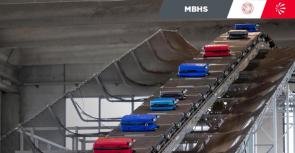
A Guide to Relocating Jobs and Expanding Your Career Horizons
Relocating jobs can be a daunting prospect, but it also presents an opportunity to expand your career horizons...
33 views
Relocating jobs can be a daunting prospect, but it also presents an opportunity to expand your career horizons...
33 views
Embarking on a career in the legal field is akin to navigating a dynamic landscape that constantly responds to...
11 views
Embarking on the journey to secure a job is an exhilarating yet challenging endeavor. Whether you're a recent...
99 views
If you’re setting out on the path to be a lawyer, what are the educational requirements you will have to...
12 views
In the ever-evolving realm of the legal profession, cultivating a robust online presence has transcended the...
44 views
The legal profession, once synonymous with a linear career trajectory within traditional law firms or...
179 views
In the realm of the legal profession, understanding the nuances of the job market is akin to wielding a...
71 views
The legal profession offers a multitude of career opportunities, each with its own unique set of...
86 views
In an era defined by digital innovation and connectivity, the legal profession is undergoing a profound...
81 views
In the competitive landscape of job hunting, references and resume checks stand as pivotal checkpoints in the...
77 views
In recent years, the legal profession has experienced profound changes that have reshaped the way lawyers...
105 views
In today's interconnected world, social media platforms have become an integral part of professional...
77 views
As a law school student, answering the question of your practice area can be challenging because you may need...
17 views
Asking about benefits during a job interview is generally acceptable, but it's important to approach the topic...
54 views
Job interviews are a crucial step in the recruitment process, and it is essential to prepare well for them....
160 views
Job interviews are essential in the hiring process, and candidates often spend a lot of time preparing for...
127 views
Have you been working at a law firm for years and are considering lateral hiring to another law firm? If so,...
80 views
The legal profession is one of the most competitive fields, and it can be challenging to break into without...
18 views
Many legal professionals believe that if they want to find their dream job, using the services of legal...
257 views
Losing a job is something almost every attorney goes through at least once in their legal career. It can feel...
2527 views
Most attorneys focus on spending their legal careers and providing legal services only in major law firms in...
667 views
Are you searching for a legal job? Has your search dried up, and you are losing hope? First, if you are a new...
220 views
Many people think that finding a job as a law student or attorney is easy. The legal job market must be...
195 views
If you're an attorney, the right combination of experience and education can help land you a job at investment...
73 views
Law firm partnership is a goal that many law students and associate attorneys aspire to meet. If you’re one...
758 views
Why Are There Likely to Be Legal Jobs in Government During a Recession?
506 views
When leaving law school, or upon passing the bar, attorneys often have more than one offer to consider for...
214 views
The days of the “forever job” are, for the most part, over unless you start your own law firm and manage...
447 views
Yes, it’s still a really tough job market …but don’t despair. There is hope. Sometimes all you need are...
49 views
It’s easy to see Twitter as merely a source of amusement—especially if your feed is bogged down with...
37 views